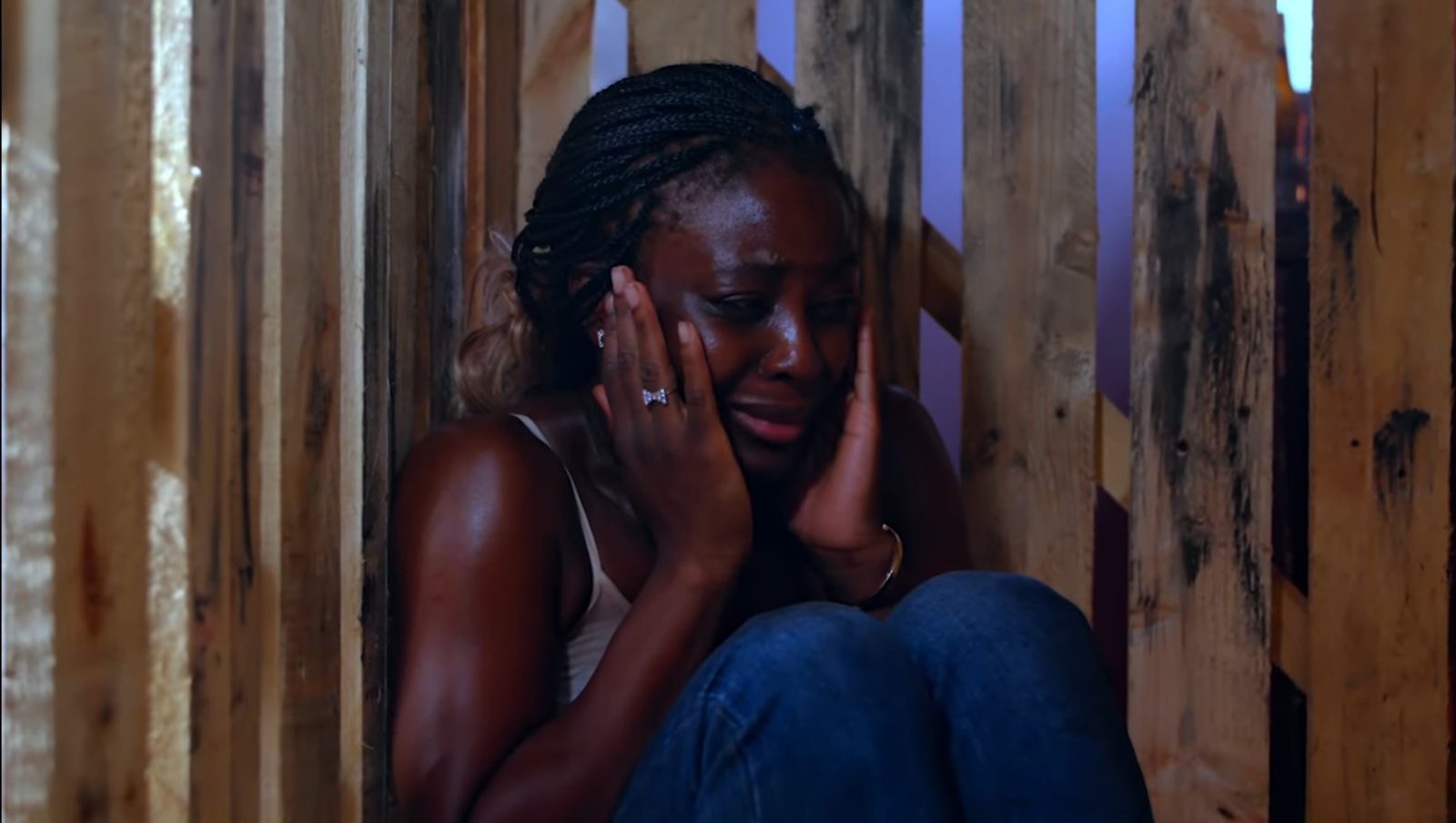Through PLS RT, Chidi has made a film that insists on seeing kidnapping victims not as numbers, but as people.
By Joseph Jonathan
In Nigeria’s social media space, “please retweet”, or PLS RT for short, has evolved from a casual phrase used to boost jokes, music links, or political hot takes into something far more urgent: a digital siren.
In moments of emergency — kidnapping, medical fundraising, sudden disappearance — PLS RT has become a desperate lifeline, a public appeal that bypasses unreliable official channels in favour of the social media’s speed and reach. It is a coping mechanism born from state failure: in a country where police response is slow, security systems are fragmented, and trust in institutions is thin, Nigerians have turned virality into a survival strategy.
It is within this tense reality that Ifeanyi Barbara Chidi’s 28-minute short film, PLS RT, unfolds. Following the story of Kasope Briggs (Folu Storms), a Lagos woman kidnapped after a night out and confined to a wooden crate, the film distils the national kidnapping crisis into a single human perspective.
Kasope’s attempts to call her family and send an SOS tweet are met with silence, leaving her—and the audience—suspended in dread. By anchoring the story in one woman’s claustrophobic ordeal, Chidi transforms a familiar social media plea into a cinematic meditation on fear, isolation, and the quiet violence of being unseen by the very systems meant to protect you.

It is easy to feel numbed by the endless stream of missing-person alerts and kidnapping reports flooding Nigerian social media timelines. For many, scrolling past these posts is not indifference but a quiet form of self-preservation—a way to cope with the helplessness that comes from witnessing so much tragedy that you cannot change. Chidi’s PLS RT pushes against this emotional distancing. By keeping the camera locked on Kasope in real time, confined to a wooden crate that feels at once like a coffin and a confessional, she collapses the space between statistic and human being. The film refuses to let the viewer look away or skim past; it demands we experience the immediate, intimate reality of what it means to be one of those names and faces that flash by on our screens.
That focus also sharpens the film’s feminist undercurrent. Kasope’s kidnapping, though accompanied by a ransom demand, is not tied to political motives or high-profile targets; it is a random act that could happen to any Nigerian woman navigating nightlife, public spaces, or simply the wrong taxi. In a society where women’s safety is often trivialised or reframed as a cautionary tale about “being careful,” Chidi refuses to shift the story to male saviours or police rescue teams. Instead, she keeps us with the woman — her fear, her fleeting bravado, her quiet surrender — making the point that women’s experiences deserve centre stage without mediation.
Much of this intimacy is owed to Folu Storms’ performance. Trapped in a confined space, she turns the crate into a one-woman stage, her range oscillating between frantic calls, whispered prayers, and long silences heavy with resignation. Without relying on action sequences, her performance draws strength from micro-expressions and breath control, supported by cinematography that lingers on her face and sound design that lets the air grow uncomfortably still.

PLS RT also belongs to an emerging tradition in Nigerian cinema: socially conscious short films that compress vast national crises into tight, potent narratives. Chidi uses the short form’s limitations to her advantage, as brevity becomes focus, and focus becomes force. There is no subplot to dilute the tension, and no unnecessary wide shots to let the viewer escape the crate’s suffocating dimensions.
Importantly, PLS RT is also a commentary on how digital culture shapes Nigerian survival strategies. For a generation raised on instant connection via social media, the idea that a single viral post could save a life feels plausible — sometimes, tragically, it is the only plan available. Chidi neither romanticises nor mocks this belief; she presents it as the desperate logic of a people who cannot rely on the state.
If there is an unspoken antagonist here, it is not just the kidnappers: it is absence. The absence of a functional security network. The absence of rapid emergency response systems. The absence of a state that can be trusted to act before ransom is paid. In filling this void, ordinary Nigerians have turned social media into an ad hoc rescue network, where virality becomes a lifeline, even if the odds of success are painfully low.
Through PLS RT, Chidi has made a film that insists on seeing kidnapping victims not as numbers but as people, reminding us that behind every viral plea lies a life paused mid-sentence, a future held hostage. In her hands, the familiar phrase PLS RT becomes more than a social media call-to-action; it is the echo of a nation’s desperation, a reminder that visibility can be the difference between vanishing entirely and still being searched for.
Rating: 3/5
Joseph Jonathan is a historian who seeks to understand how film shapes our cultural identity as a people. He believes that history is more about the future than the past. When he’s not writing about film, you can catch him listening to music or discussing politics. He tweets @JosieJp3.



